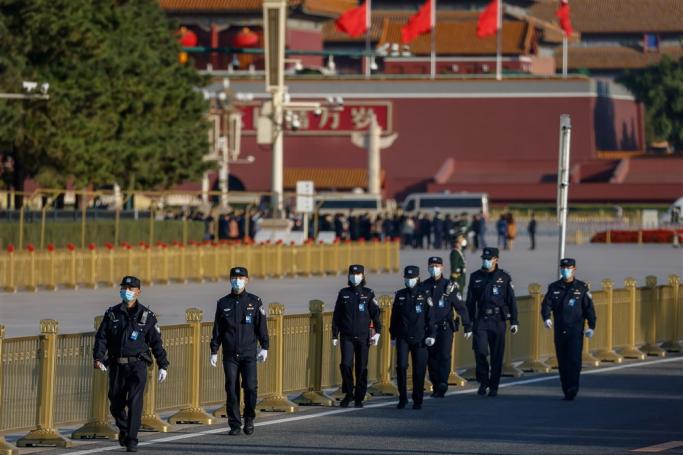From all appearances, China is not really concerned about the prevailing conditions in Myanmar, which have become a headache for ASEAN or Association of South East Asian Nations.
China has chosen to ignore the ground reality and focus on its business, economic and strategic interests in Myanmar.
Chinese Ambassador to Myanmar Chen Hai recently met with Myanmar officials to promote Chinese interests in military-ruled Myanmar. He met the junta-appointed International Cooperation Minister Ko Ko Hlaing in the last week of November and called for accelerating implementation of the China-backed projects in Myanmar, and promised to cooperate more closely in the international arena, in particular with the United Nations and the regional bloc ASEAN. Chen held a meeting with minister of the junta’s Union Government and junta peace negotiation team leader Lieutenant-General Yar Pyae, and donated cash on behalf of the Chinese government for Myanmar’s peace process and the socioeconomic development of ethnic people in border areas.
After the ambassador, senior officials from the Chinese Embassy began meeting several top government officials and political parties. The political consul Lin Tao from the Chinese Embassy called on the chairman of the military’s proxy Union Solidarity and Development Party (USDP), Khin Yi, in Naypyitaw. The meeting was significant as Tao reported on the outcome of the 20th Congress of the Communist Party of China (CPC) and called for continued engagement between the CPC and the USDP. In the meeting, the two sides focussed on cooperation.
Tao’s visit to the USDP office raised eyebrows in political and diplomatic circles as it came amid raging controversy over the junta’s plan to hold a national election next year. Also, the USDP headquarters in Naypyitaw has barely received Chinese visitors since the coup in February 2021. It may be mentioned here that Chinese Ambassador Chen had visited the junta-appointed Union Election Commission chairman Thein Soe in April and asked about its plan for holding elections.
Meanwhile, China’s political consul Tao reported on the outcome of the 20th Congress of the Communist Party of China (CPC) and called for continued engagement between the CPC and USDP, wrote Khin Yi on his Facebook page. USDP senior members were also present at the meeting. Also, diplomat Zheng Zhihong from the embassy opened a disaster awareness centre and disaster response equipment warehouse in Shan State’s Pindaya. This centre was established with Lancang-Mekong Cooperation special funds. Meanwhile, the Mandalay-based Consul General Chen Chenhas donated a LED screen board at a pavilion named after China’s first premier Zhou Enlai at the Shwezigon Temple in Bagan. The pavilion was built with donations from Zhou when he visited Bagan in 1961.
According to media reports, Beijing has not been directly engaging with junta leader Min Aung Hlaing, yet, it has been providing diplomatic support to the military regime at international forums while continuing to invest in the country. In the past decade, China has worked hard to finalize deals on the China-Myanmar Economic Corridor (CMEC), a multi-billion-dollar infrastructure initiative.
China has officially recognized the military regime and called it Myanmar’s government. Beijing has been a good friend to successive military dictators in Myanmar, and Min Aung Hlaing’s regime is no exception. In sharp contrast to China, ASEAN leaders are none too happy with Myanmar’s military regime.
ASEAN’s special envoy on Myanmar has cancelled his trip to the country which reflects the growing tensions between the regional bloc and the military regime.
Cambodian foreign minister Prak Sokhonn was appointed the bloc’s special envoy on Myanmar to help resolve the social and political turmoil that has engulfed the country in the wake of a military coup last year. Cambodia currently holds the regional group’s rotating chair position but is due to hand it over to Indonesia at the turn of the year.
It may be mentioned here that Southeast Asian leaders have demanded the Myanmar junta take action to implement a peace plan aimed at quelling the country's escalating bloodshed which has seen thousands killed in clashes since last year's coup.
The ASEAN regional bloc summit held in Phnom Penh in mid-November, attended by Chinese Premier Li Keqiang, blocked Myanmar junta chief Min Aung Hlaing from attending. China, the bloc's biggest trading partner, has historically had good ties with the Myanmar junta, though it has voiced some unease at the ongoing chaos in the country. In the meeting, the leaders had agreed on a 15-point decision plan while admonishing the junta to act or face serious consequences - including expanding a ban on junta figures attending ASEAN meetings. Within the bloc, Indonesia has been one of the main voices calling for tougher action on the junta, along with Malaysia and Singapore. Marcos Jr called for ASEAN to open contacts with opposition groups in Myanmar and even suggested engaging with the National Unity Government (NUG).
The NUG is a self-declared parallel body dominated by former lawmakers from Aung San Suu Kyi's party which considers itself to be Myanmar's legitimate government. The Myanmar junta regards the NUG as "terrorists," and engaging with the group would be a significant step for ASEAN.
However, foreign affairs experts have expressed their deep concern over division in ASEAN with China supporting the military junta.
Meanwhile, all eyes were on the ASEAN-EU meeting in Belgium’s Brussels on 14 December and the issue of Myanmar came up for discussion. It will be interesting to see how China acts on the issue.












